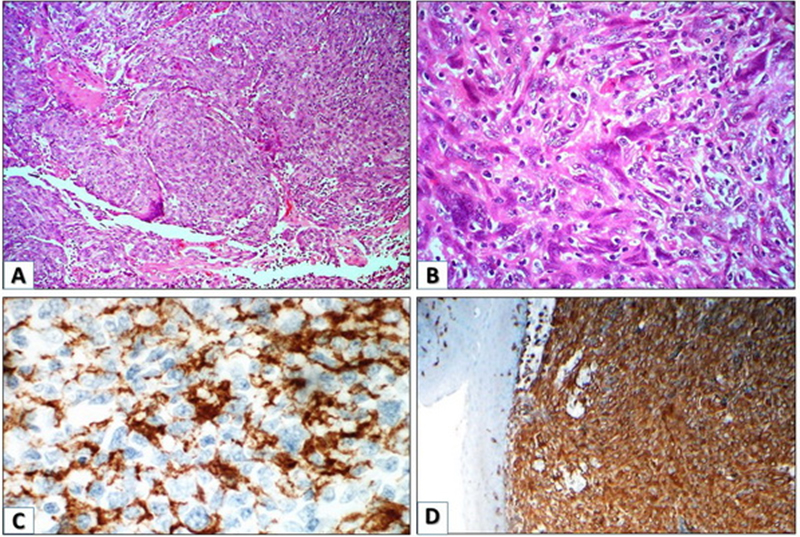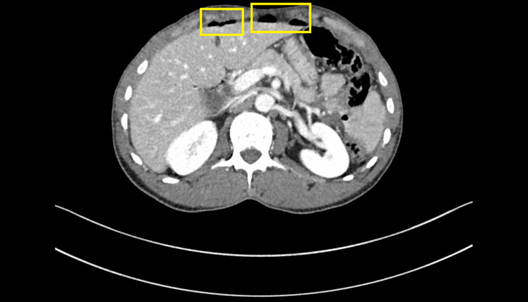 |
Case Report
Sickle cell crisis in third trimester of pregnancy complicated by hemolysis, elevated liver enzymes, and low platelets (HELLP) syndrome
1 Resident, Obstetrics and Gynecology, Penn State Health Milton S. Hershey Medical Center, Hershey, PA, United States of America
2 Fellow, Maternal Fetal Medicine, Penn State Health Milton S. Hershey Medical Center, Hershey, PA, United States of America
3 Assistant Professor, Maternal Fetal Medicine, Penn State Health Milton S. Hershey Medical Center, Hershey, PA, United States of America
Address correspondence to:
Stephen Senthan Rasiah
507 Huxley Drive, Hummelstown, PA 17036,
United States of America
Message to Corresponding Author
Article ID: 100060Z06SR2019
Access full text article on other devices

Access PDF of article on other devices

How to cite this article
Rasiah SS, Maines JL, Condon N. Sickle cell crisis in third trimester of pregnancy complicated by hemolysis, elevated liver enzymes, and low platelets (HELLP) syndrome. Case Rep Int 2019;8:100060Z06SR2019.ABSTRACT
Introduction: Sickle cell disease is one of the most common hemoglobinopathies in the world, affecting approximately 100,000 people annually in the United States alone. This case presents an example of the importance of close monitoring during the pregnancies of patients with sickle cell disease in order to facilitate prompt evaluation and treatment of complications as they arise.
Case Report: A 22-year-old, gravida 2 para 1001, was admitted at 306/7 weeks of gestation due to sickle cell crisis. Following admission and observation, she developed hemolysis, elevated liver enzymes, and low platelets (HELLP) syndrome on hospital day-4, and decision was made to proceed with delivery. The patient was maintained on magnesium seizure prophylaxis for 24 hours following delivery. The patient was discharged home on post-operative day-5 on labetalol 400 mg q8hrs secondary to persistent hypertension. The patient was doing well at her routine six week postpartum visit and maintained on the anti-hypertensive medication.
Conclusion: This case of HELLP syndrome following a sickle cell crisis highlights the importance of close monitoring of sickle cell disease patients during pregnancy. Multi-disciplinary care plays a critical role in the successful management of these patients due to the acute decompensation that can follow a sickle cell pain episode. A facility must be prepared to provide support from obstetrics, hematology, neurology, and intensive care. The obstetrical team must understand sickle cell physiology. The resources to provide prompt blood transfusion and exchange transfusion must also be available. This knowledge is especially important to health care providers who may be taking care of patients in lower resource settings.
Keywords: Elevated liver enzymes, Hemolysis, Low platelets, Pregnancy, Sickle cell
SUPPORTING INFORMATION
Author Contributions
Stephen Senthan Rasiah - Substantial contributions to conception and design, Acquisition of data, Analysis of data, Interpretation of data, Drafting the article, Revising it critically for important intellectual content, Final approval of the version to be published
Jaimie Lynn Maines - Substantial contributions to conception and design, Acquisition of data, Analysis of data, Interpretation of data, Drafting the article, Revising it critically for important intellectual content, Final approval of the version to be published
Niamh Condon - Substantial contributions to conception and design, Acquisition of data, Analysis of data, Interpretation of data, Drafting the article, Revising it critically for important intellectual content, Final approval of the version to be published
Guaranter of SubmissionThe corresponding author is the guarantor of submission.
Source of SupportNone
Consent StatementWritten informed consent was obtained from the patient for publication of this article.
Data AvailabilityAll relevant data are within the paper and its Supporting Information files.
Conflict of InterestAuthors declare no conflict of interest.
Copyright© 2019 Stephen Senthan Rasiah et al. This article is distributed under the terms of Creative Commons Attribution License which permits unrestricted use, distribution and reproduction in any medium provided the original author(s) and original publisher are properly credited. Please see the copyright policy on the journal website for more information.





